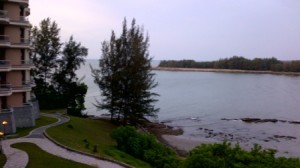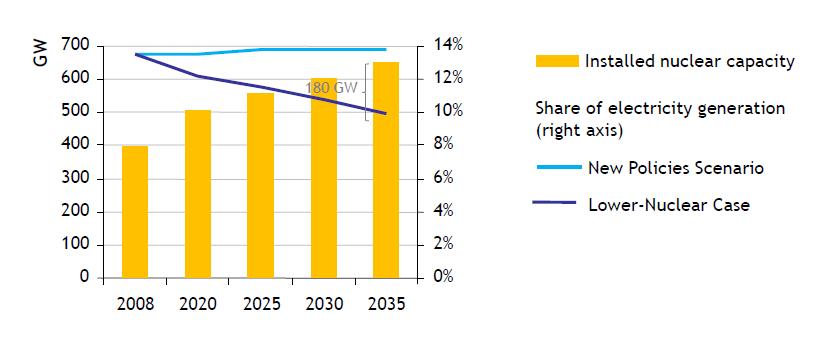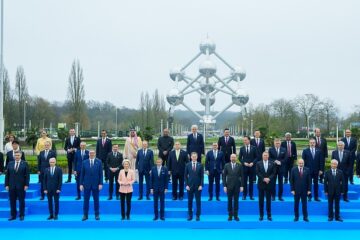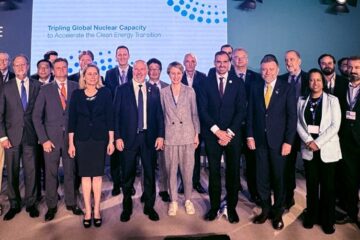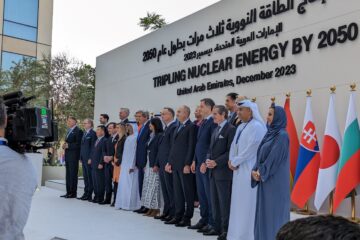Has the future really changed or is this a momentary blip?
Although it has been more than two months since I last posted; Fukushima continues to dominate the discussion both within and outside of the industry. So here I am, sitting on the balcony of my beautiful room in Brunei – overlooking the South China Sea – contemplating how this major event in Japan will affect us going forward. Predictions are near impossible with change being constant as events continue to unfold. Of course, of most importance are the ongoing efforts in Japan to get the units under control and to bring the event to a close. It is the impact on the people of Japan that is always our first concern.
However being in this contemplative mood, I am asking myself; in the medium to long term, is the impact of Fukushima dire or is it demonstrating that nuclear is in fact safe? Will the future be bright or is it the beginning of the end? We all have been talking about the events in Germany, although I am not quite sure why. Germany has had a nuclear phase out policy originating in about 1998 with a clear policy in place from 2001. Many conveniently forget this. It was only in 2010 after years of debate that they decided that life extension for their existing units would be a possibility. So why are we then surprised that following the accident at Fukushima they have reverted to their previous phase out position? Of course one main difference is that 8 of the oldest plants are now closed with only 9 remaining in service until 2022.
Given Fukushima as the event that initiated this return to a phase out policy, there has been a very significant amount of discussion around the globe on this issue. Of course many say it is a demonstration that the industry is dead – but I would say that almost as many others are looking to this decision and asking about its implications; implications for carbon reduction in Germany and for the stability of the European electricity grid in general. Will this be the beginning of a German led renewable revolution or will it just mean Germany will have to use more fossil power and buy more nuclear power from France? Already it is clear that carbon emissions in Germany will go up as renewables displace nuclear and more fossil generation is built. In fact this is one of the biggest issues in a nuclear phase out. Efforts to reduce carbon may be valiant but it’s a losing proposition when first there is a large non carbon emitting nuclear component to replace instead of replacing fossil fuels.
Other than Germany only Switzerland has taken a very negative view, also committing to a nuclear phase out at the end of life for the current fleet, and dropping plans for new build. And of course in Japan, there is much discussion on how to move forward with their program as they continue to deal with the aftermath of this ongoing event. However most other countries including the US, Canada and the UK have reaffirmed their commitment to nuclear power as have China and many other Asian nations.
The potential impact on the world electricity supply is now being contemplated by the IEA as they prepare for their upcoming WEO 2011, showing a new low nuclear scenario directly resulting from the events at Fukushima. In this scenario, the share of nuclear will drop from 14% to about 10% by 2035; a significant drop. They are suggesting that OECD countries will move to reduce nuclear use (with early retirements and less life extensions) while it continues to increase in China and other Non OECD countries. I am not sure of the details of this assumption so far since it seems to me that only Germany and Switzerland have made major policy changes – and Germany had no plans for new units and Switzerland had modest plans at best. So where is the big decline? I am assuming that it comes from early closure of a number of units. I guess that we will see the detail when the WEO comes out this November.
Howeveer, the conclusion of this potential scenario is clear. According to the IEA, there will be higher CO2 emissions, higher energy prices and less overall energy security. But we will have to wait until the 2012 WEO to see a more detailed analysis of nuclear. This is probably a good idea since we will have more knowledge of the impact of Fukushima by then.
So while we all wrestle in the aftermath of the events of March 11, there is an important healthy discussion starting. One that really takes a hard look at how we generate electricity and the role of nuclear. Let’s hope that it is a rational discussion and that we can then demonstrate clearly the role that nuclear power is to play to meet our energy needs going forward.
